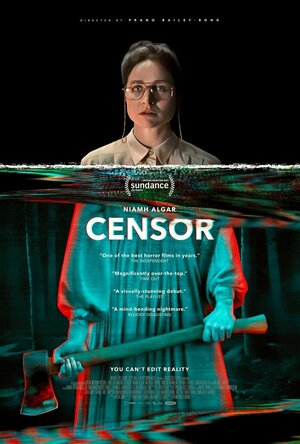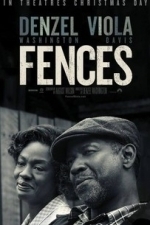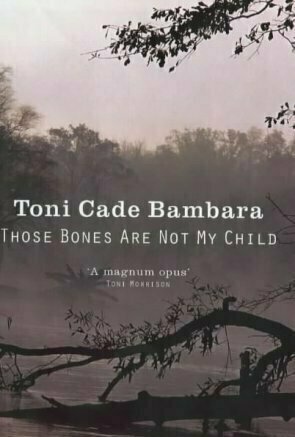
Racing Rivals
Games and Sports
App
MILLISECONDS MATTER Jump behind the wheel and risk your ride as you challenge drivers around the...

Anova Culinary
Food & Drink and Lifestyle
App
Browse Recipes and Start Cooking directly from the Anova app! The Anova app is the companion app...

Tank Battle: East Front 1944
Games and Entertainment
App
Tank Battle: East Front 1944 is the penultimate title in the successful ‘Tank Battle: East...
Bob Mann (459 KP) rated Censor (2021) in Movies
Sep 3, 2021
- I often whinge on about there being no novelty in movies anymore, with everything being derivative of everything else. Well here's a case for the defence. There have been movies before about the mental effect of working in the horror movie business (Toby Jones in "Berberian Sound Studio" comes to mind). But none (as far as I'm aware) from the viewpoint of a film censor. This novelty gave the movie the scope to go in a number of different directions - including as a historical drama. But it focuses on a study of how loss and grief can suddenly emerge in dramatic ways even after many years. Director Prano Bailey-Bond co-wrote this and directs it with such verve that she is very much added to my "one to watch" list for writer-directors.
- Irish actress Niamh Algar is just brilliant here, reminiscent of Morfydd Clark's fantastic performance in "Saint Maud" (not the only parallel to be drawn in this review). The acting during the dramatic conclusion is utterly chilling.
- While the ending of the movie might be polarising, I loved it. No spoilers, but it's one of my favourite endings of any movie so far this year. It reminded me strongly of the ending of "Saint Maud".
- The editing is by Mark Towns (who also did "Saint Maud"). And it's bloody marvellous, particularly during that finale! While it doesn't shy away from showing some pretty horrible stuff, Towns shows much of this subliminally in the edit (shades of the "Psycho" shower scene). This probably helped with its certification (of which more later).
- The music by Emilie Levienaise-Farrouch is quirky and fitting for the movie. I loved the jaunty end-title music.
- Has one of the best impalings since Timothy Dalton fell on that model church spire in "Hot Fuzz"!
Negatives:
- While Algar is utterly fabulous, I was less convinced by the acting of some of her fellow censors in the office. Some of this felt a bit wooden to me.
Summary Thoughts on "Censor": The workings of the UK film censors have always fascinated me, and here's a novel insight into their work during a very difficult period in their history: the National Viewers and Listener's Association, headed by the fearsome Mary Whitehouse, was up in arms at the potential damage to people's (and particularly children's) mental wellbeing from the influx of "video nasties" arriving in homes on VHS tapes. The film needs to be applauded for coming up with such a novel storyline.
What I found surprising (and ironic) is that this got away with only a "15" certificate. Editor Mark Towns suggested to me, in a private communication on Twitter, that the BBFC rated it thus due to the "context" in which the violence was set. But I remember the first 'X' film I saw. It was Brian De Palma's "The Fury", which (from memory) was purely rated as such for the final scene in which John Cassavetes's character explodes in a gory fountain. Judging from "Censor"'s "15" certificate, things have become significantly more permissive in recent years!
(For the full graphical review check out onemannsmovies on the web, facebook and (for the video review) Tiktok. Thanks)
Bob Mann (459 KP) rated Fences (2016) in Movies
Sep 29, 2021
This is a film primarily about resistance to change. All those changes in the outside world are on the ‘other side of the fence’ that Troy habitually tries to finish but never seems to put his mind to. Fences keep things out; but they also keep things in, and Troy is in a cocoon of his own making. He justifies his actions as a ‘family provider’ with lengthy speeches but ultimately they deliver hollow words and assertions that don’t stand up to scrutiny.
This is a pressure cooker of family life that is primed to blow, and a revelation (which I didn’t see coming) sets that fuse alight.
This is a film worth watching for the acting performances of Denzel Washington and (particularly) Viola Davis, winner of the Best Supporting Actress BAFTA and a strong contender for the Oscar. Both give assured performances, although Troy is such an instantly dis-likable and pitiable character that I could feel my emotions influencing my judgement about his performance.
But this is also a strong ensemble cast, with Mykelti Williamson (famously appearing as Bubba of the ‘Bubba Gump Shrimp Factory’ fame) being effective as Troy’s disabled brother and English-born Jovan Adepo being particularly impressive in an extremely assured feature debut.
However, the Broadway roots of the piece are highly visible with 98% of the film set either in the back yard, in the house, or on the front steps (the set could clearly rotate!). For such a claustrophobic topic, this is perhaps apt. But as a feature film I longed for the action to go elsewhere. The film version of the story – with a few tweaks to the screenplay – has lots of opportunities for this, but these are never taken. This makes the whole piece feel ‘worthy but dull’. In particular, anyone looking for a useful tutorial on fence building needs to look elsewhere!
As for the recent “Moonlight” there is also excessive use of the “N” word and other outdated racial references that have the potential to offend.
Good luck to Viola Davis and Denzel Washington (who also directed this) for their Best Supporting Actress and Best Actor Oscars nominations. But “Best Film” Oscar? No, I don’t think so. In truth this is a film that I will struggle to remember or get excited about in a month’s time and it will not be on my re-watch list.
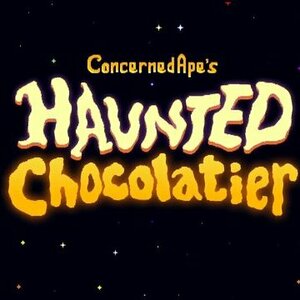
Concerned Ape's Haunted Chicolatier
Video Game Watch
Hey everyone, After dedicating 10 years of my life to Stardew Valley (and counting), the time has...
Concerned Ape Haunted Chocolatier Stardew Valley
Gareth von Kallenbach (980 KP) rated Encanto (2021) in Movies
Nov 15, 2021
In the new Disney film “Encanto”; audiences are told the story of how the family patriarch founded the community with a magical candle and how upon reaching a certain age; all members of her family receive a “gift” from the magical house which gives them an ability to help the community. From being able to heal with cooking to talking to the animals and super strength; the family Madrigal is the beloved pillar of the community.
To every rule there is an exception and young Mirabel (Stephanie Beatriz); is the only member of her family not to receive a gift of powers. As such she is seen as a pariah from the family and believes she is more tolerated than loved especially compared to her siblings who are endowed with amazing abilities.
Things change when a new member of the family goes through the gifting ceremony; the first one since Mirabel was denied, and receives an amazing gift and basks in the love of the town and family. Mirabel has a vision of the house cracking and falling into ruin. She tries to warn her family but they see the house in its usual pristine condition and blame Mirabel for being jealous for not having a gift and wanting to take attention away from those who do.
Mirabel believes in what she saw and learns that members of her family may know more than they admit and that they hold the key to saving the day. This leads to a quest to find the absent Uncle Bruno (John Leguizamo); who has been absent as many believe his gift of prophecy only leads to bad things coming to fruition and has gone into hiding as a result.
Mirabel is soon forced to look deep inside herself and find her strength to overcome her own insecurities and save her family and community.
The film has great animation and is awash in color as it brings the magical community to life. The music is lively and is what you would expect from Lin- Manuel Miranda as it brings joy and energy to the film that is in keeping with the Disney tradition of amazing music in their animated films.
The biggest issue that I had with the film is that while fun and entertaining; the story never took the next step forward and at times dragged. This is not to say that “Encanto” is a bad film as it is lively, colorful, and fun; however it does not reach the heights of Disney classics like “Frozen” “Moana” and other classics. Think of it this way; “Lilo & Stitch” is a fine animated film but few would hold it in the same regard as “The Lion King”, “Beauty and the Beast”, and “The Little Mermaid”.
In the end “Encanto” offers a fun experience for the family and fans to enjoy and shows how even when they do not hit the top of the mountain; Disney is still the Gold Standard in animation.
4 stars out of 5
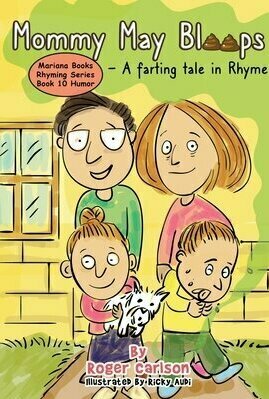
Mommy May Bloops - A Farting Tale in Rhyme (Mariana Books Rhyming #10)
Book
Mommy May is a perfect mom in nearly every way. She loves her kids, like every mother would. She is...
Children Humor Farting
Hadley (567 KP) rated Those Bones Are Not My Child in Books
Nov 12, 2019
Bambara writes not in a normal narrative - - - just telling a story from specific viewpoints, but she often breaks off into smash poetry to depict a character's state-of-mind, which, sometimes can be off putting for the reader, breaking the flow of the story. Yet, the use of smash poetry combined with the era and the heart breaking subject at hand, separates Those Bones Are Not My Child from every True Crime book I have ever read. But a note for fans of True Crime, this story is from the view point of the victims' families and the search they went through to try and catch the murderer(s), unlike most TC books, which follow the police through the investigation leading to, usually, the capture of the perpetrator. From living in Atlanta during the time of the murders, Bambara was able to reconstruct the life of a black family in 1980's Georgia, while focusing on the effect these terrible crimes had on the surrounding community. Bambara did an amazing job on what most writers cannot.
The amount of characters, specifically the fictional ones, are very well created. She describes just enough to give readers the ability to tell them apart, showing every now and then from their own viewpoints. Out of all the characters, I came to really like Zala's two other children: Kenti and Kofi. One particular scene shows the strain of Sonny's disappearance on their family: " Zala parked the comb again and sat back. 'Listen, you two.' Kofi dropped down onto his knees. 'The police and the newspapers don't know what the hell is going on, so they feel stupid, because they're supposed to know, they're trained to know, they're paid to know. It's their job. Understand? But it's hard for grown-ups to admit they're stupid, especially if they're professionals like police and reporters. So they blame the children. Or they ignore them and fill up the papers with the hostages in Iran. Understand? And now... Jesus... they've got people calling those kids juvenile delinquents.'
'Don't cry.' Kenti tried to lean into her lap and got pushed away.
'They don't know a damn thing and they act like they don't want to know. So they blame the kids 'cause they can't speak up for themselves. They say the kids had no business being outdoors, getting themselves in trouble.'
'You let us go outdoors.'
'Of course I do, baby. We go lots of places, 'cause a lot of people fought hard for our right to go any damn where we please. But when the children go out like they've a right to and some maniac grabs them, then it's the children's fault or the parents who should've been watching every minute, like we don't have to work like dogs just to put food on the table.'
Kofi walked on his knees towards the bed, but he didn't lean on her like he wanted 'cause she might push him away. So he just put his hand on the mattress next to hers."
During the Atlanta Child Murders, victims were random, except for that they were children from the same neighborhood, and they were African-American. At first, police didn't believe a serial murderer was going around abducting children, but rather that 'poor, broken' families were killing their own. In the Prologue, Bambara shows that the victims' families and private detectives came up with more ideas of the motive than the police did:
" White cops taking license in Black neighborhoods.
The Klan and other Nazi thugs on the rampage.
Diabolical scientists experimenting on Third World people.
Demonic cults engaging in human sacrifices.
A 'Nam vet unable to make the transition.
UFO aliens conducting exploratory surgery.
Whites avenging Dewey Baugus, a white youth beaten to death in spring '79, allegedly by Black youths.
Parents of a raped child running amok with 'justice.'
Porno filmmakers doing snuff flicks for entertainment.
A band of child molesters covering their tracks.
New drug forces killing the young (unwitting?) couriers of the old in a bid for turf.
Unreconstructed peckerwoods trying to topple the Black administration.
Plantation kidnappers of slave labor issuing the pink slip.
White mercenaries using Black targets to train death squadrons for overseas jobs and for domestic wars to come. "
All of these theories are explored with evidence in Those Bones Are Not My Child. One scene in Part III, Zala's cop friend, B.J. shows up to her house to tell her to stop bringing attention to the investigation, " 'That Eubanks woman - - - your husband's friend? - - - she said you were bringing in the TV networks to blow the case open. I thought we had an agreement to keep each other informed. This morning I find out through the grapevine that you parents got a medium stashed in a hotel here in town, some woman who's been making headlines up north with cases that supposedly have the authorities stumped. If you knew how much work has been done on this case - - - no, listen, don't interrupt me. Then I find out - - - and not from you - - - that some of you parents are planning to tour the country cracking on the investigation. That's not too smart. And you should have told me.' " These two may have been fictional characters, but in Bambara's Acknowledgments, she states that all scenarios were true, and that she made B.J. to tell about the actual police officers who were involved with the investigation.
The tension between the police and the public is felt throughout the entire story. Despite all of the work the citizen task force put in, police arrested a man named Wayne Williams for the murder of two adult victims (who, due to their mental age, which was stated to be that of children, were placed on the victims' list of the Atlanta Child Murders): " Wayne Williams, charged with the murder of twenty-seven-year-old Nathaniel Cater and implicated in the murder of the other adults and children on the official list..." Zala, having worked for almost a year at the STOP offices, she, along with most of the community, doubt that Williams was a lone killer or even the killer at all. Williams never stood trial for the childrens' murders, but the police informed the public that he did it, case closed - - - although, after Williams' arrest, children were still being abducted and their bodies were still being found. Even after Williams' trial and the guilty verdict for two adult victims, some people stuck around to continue to investigate and claim Williams a 'scapegoat' of politics: " There were still pockets of interest and people who wouldn't let the case go. James Baldwin had been coming to town off and on; a book was rumored. Sondra O'Neale, the Emory University professor, hadn't abandoned her research, either. From time to time, TV and movie types were in the city poking around for an angle. Camille Bell was moving to Tallahassee to write up the case from the point of view of the STOP committee. The vets had taken over The Call now that Speaker was working full-time with the Central American Committee. The Revolutionary Communist Party kept running pieces on the case in the Revolutionary Worker. Whenever Abby Mann sent down a point man for his proposed TV docudrama, the Atlanta officials and civil rights leaders would go off the deep end. " At the end of it all, the questions still remain: did Williams kill all of those children by himself? Was he part of a pornographic cult that killed the children? Or is Williams completely innocent, and the murderer(s) are still out there? In Those Bones Are Not My Child, I guarantee you will be left questioning if the police were right.
All in all, the writing transitions can become confusing sometimes, especially the interludes of smash poetry, but I highly recommend this book to people who like the True Crime genre, especially of any interest in this specific case.

